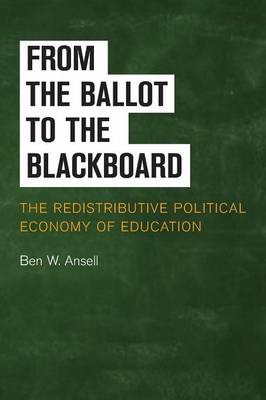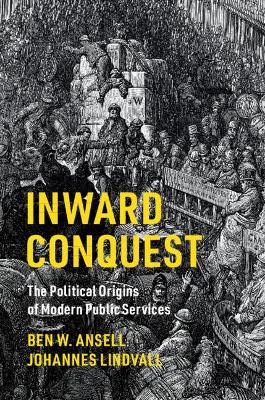Cambridge Studies in Comparative Politics
3 total works
From the Ballot to the Blackboard provides the first comprehensive account of the political economy of education spending across the developed and developing world. The book demonstrates how political forces like democracy and political partisanship and economic factors like globalization deeply impact the choices made by voters, parties, and leaders in financing education. The argument is developed through three stories that track the historical development of education: first, its original expansion from the elite to the masses; second, the partisan politics of education in industrialized states; and third, the politics of higher education. The book uses a variety of complementary methods to demonstrate the importance of redistributive political motivations in explaining education policy, including formal modeling, statistical analysis of survey data and both sub-national and cross-national data, and historical case analyses of countries including the Philippines, India, Malaysia, England, Sweden, and Germany.
Research on the economic origins of democracy and dictatorship has shifted away from the impact of growth and turned toward the question of how different patterns of growth - equal or unequal - shape regime change. This book offers a new theory of the historical relationship between economic modernization and the emergence of democracy on a global scale, focusing on the effects of land and income inequality. Contrary to most mainstream arguments, Ben W. Ansell and David J. Samuels suggest that democracy is more likely to emerge when rising, yet politically disenfranchised, groups demand more influence because they have more to lose, rather than when threats of redistribution to elite interests are low.
In the nineteenth and early twentieth centuries, modern states began to provide many of the public services we now take for granted. Inward Conquest presents the first comprehensive analysis of the political origins of modern public services during this period. Ansell and Lindvall show how struggles among political parties and religious groups shaped the structure of diverse yet crucially important public services, including policing, schooling, and public health. Liberals, Catholics, conservatives, socialists, and fascists all fought bitterly over both the provision and political control of public services, with profound consequences for contemporary political developments. Integrating data on the historical development of public order, education, and public health with novel measures on the ideological orientation of governments, the authors provide a wealth of new evidence on a missing link in the history of the modern state.


